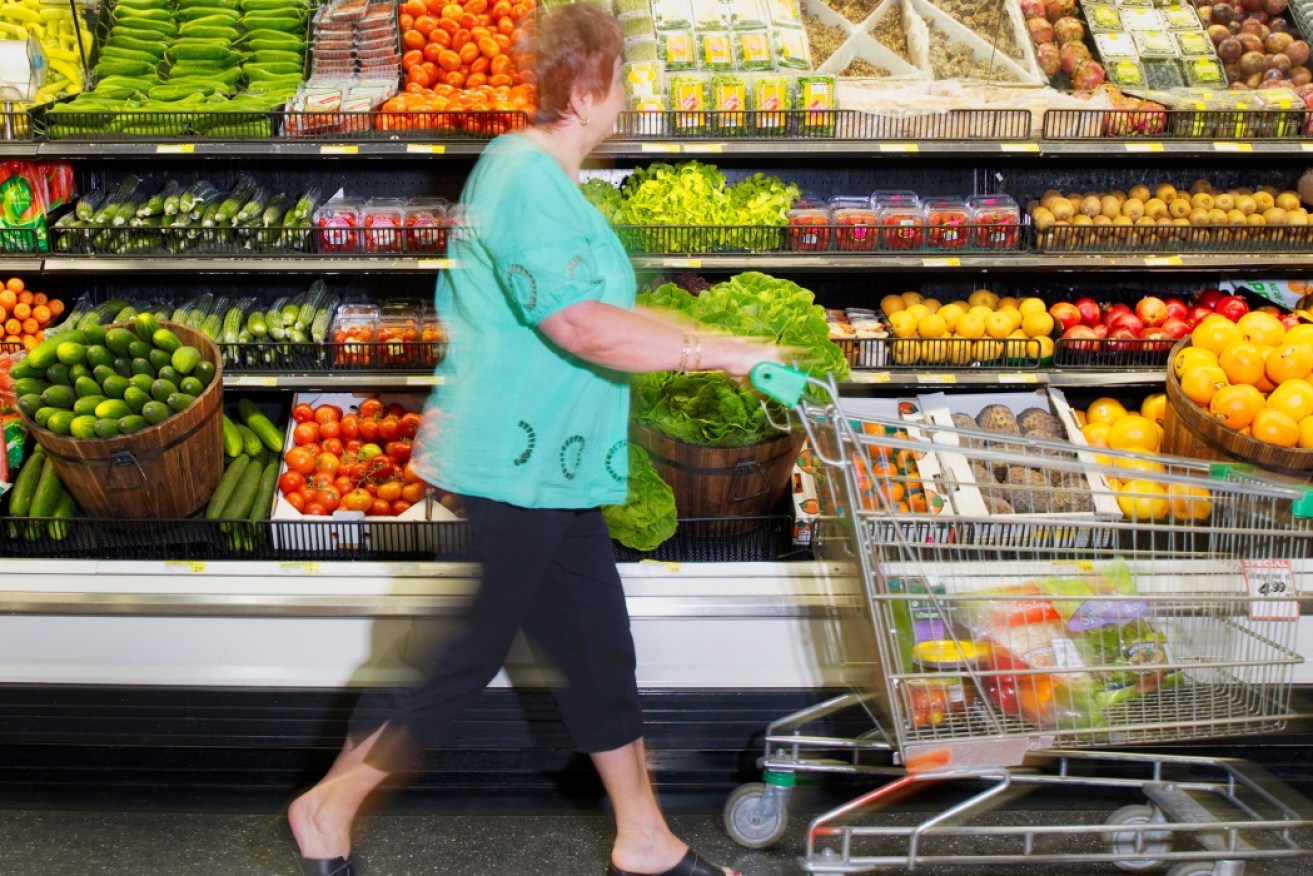Pandemic and cost of living contributing to vegetable ‘crisis’


Australians are dropping vegetables in favour of 'easier' meals. Photo: Getty
The pandemic and a rising cost of living have changed Australians’ eating habits for the worse, with fresh food abandoned for takeaway, new research has found.
A report by the Fruit & Vegetable Consortium and KPMG Australia shows one in four Australians are only eating a single serve, or less, of vegetables everyday.
The recommended daily intake of vegetables for healthy adults is five or more serves per day.
Fruit & Vegetable Consortium co-chair Lucinda Hancock said cost of living pressures, long-lasting effects of the pandemic, and food waste concerns are “chipping away” at the country’s good eating habits.
“We’re on the cusp of a health crisis in Australia if we don’t find ways to help more Australians eat more vegetables,” Ms Hancock said.
“Australians know that eating an extra serving of vegetables daily is a simple way to improve their health and wellbeing, but they’re finding it difficult to do.”
Consumer vegetable concerns
Most consumers blamed the cost of vegetables for the low levels of consumption, with inflation figures released on Wednesday showing grocery prices have skyrocketed.
The spike was driven largely by higher fruit and vegetable prices, which jumped 16 per cent over the last three months thanks largely to widespread flooding in key growing regions earlier in the year, along with labour shortages and higher global fuel prices.
The issue doesn’t appear to be going away anytime soon, with crop damage from ongoing floods in Victoria and New South Wales still being assessed.
Consumers also listed the short shelf-life and not being able to make time in their busy lifestyles to prepare vegetables as other major reasons for eating less than necessary for a healthy diet.
Regarding the short shelf life, growers told researchers while the supply chain process could be improved, Australians have “unrealistic” aesthetic expectations when it comes to their fresh produce.
“It would be valuable to teach Australians that vegetables do not need to look perfect to be good quality, and they are no less valuable from a nutritional standpoint,” growers said.
In 2014, up to 40 per cent of Australian grown fruit and vegetables were tossed out for not the having perfect appearance shoppers have come to expect at supermarkets.
Since then, Coles and Woolworths have embraced ‘ugly’ fruit and vegetables, selling imperfect fresh produce for less.
The report found in addition to the rising cost of living, restrictions during the first two years of the pandemic had a negative effect on people’s vegetable intake.
Australians now eat 17 per cent less vegetables than pre-pandemic, after getting in the habit of ordering takeaway and home delivered meals during lockdowns, as well as snacking more while studying and working from home, and overeating because of stress and anxiety.
Forgotten benefits
While it might be easier and quicker to eat takeout or prepackaged foods, eating more vegetables comes with a bunch of benefits.
Health benefits are the most obvious, with the report finding consumption of just one extra serve of vegetables a day could improve the physical and mental wellbeing of Australians.
This extra serve could also reduce the risk of death from heart disease and stroke by 4 per cent.
But the perks don’t stop there.
An extra serve of vegetables a day would help reduce government spending on health by about $200 million per year.
Currently the government spends about $1 billion on health expenditure due to low vegetable consumption, and this figure continues to rise and Australians’ eating habits get worse.
The downside is report said retailers could hike vegetable prices by 8 per cent of vegetable consumption increased.
But Linda Swan, chief medical officer at Medibank, which also sponsored the report, said with almost half of all Australian adults having preventable health conditions, people need to take their diet more seriously.
“Being proactive about chronic disease management and prevention is needed to deliver better health outcomes, while also delivering long-term sustainable benefits for the health system,” she said.
“A key element to improving health and wellbeing is eating well.”
The report recommended the government sponsor a national behaviour change strategy across the country drive up vegetable consumption.
In particular, the report said retail, public health and education sectors should lead initiatives to improve the food literacy and health education, and changes to the way vegetables are priced in grocery stores – from per kilogram to per individual item or recommended serve – should be explored.








